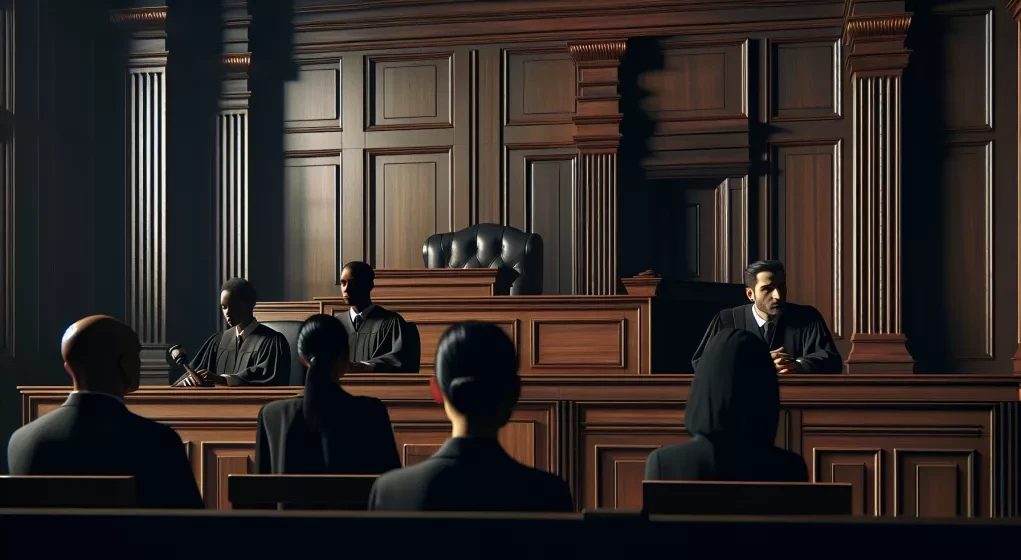In the hushed gallery of a Las Vegas courtroom, the murder trial of Robert Telles took an extraordinary turn as the former local official, embroiled in a scandalous killing, chose to testify, shattering the silence with his own voice. The specter of justice hung heavy in the air as Telles stepped into the harsh spotlight reserved for the witness stand, staring down the weighty accusations that have shadowed him since the slaying of Jeff German, a journalist whose pen had dared to scribble truths Telles wished to keep shrouded.
With the courtroom’s anticipation palpable, Telles, his voice resolute, shattered the day’s tension by proclaiming, “I am innocent and I am being framed,” initiating the narrative of his defense on the eighth day’s waning hours. Yet, what unfolded next diverged from the playbook of legal theatrics one might expect; Telles, though steeped in the realm of law, was no criminal attorney. Nonetheless, he embarked on a rare, unorthodox journey of narrative testimony, eschewing the dance of Q&A typically choreographed by legal counsel.
As he spoke, his tale weaved through the intricacies of his past role as the Clark County Public Administrator, a position where probing corruption was part of the daily grind—a role that painted a target on his back, according to Telles. Among the shadows he cast in the courtroom was a veiled accusation against a Las Vegas realty company; Telles spun a web of alleged fraudulent dealings and bogus claims aimed against him, culminating in an ominous death threat left for Jeff German, which Telles suggested was a devious ploy to frame him for murder.
The undercurrent of Telles’ self-narrated saga bespoke more than audacity; it hinted at an ethical conundrum possibly haunting his legal team. The sanctity of the Model Rules of Professional Conduct stands as a bulwark against the knowing promulgation of falsehoods within a court’s walls, a principle his attorneys would well understand.
Against the backdrop of these gambits and ethical tightropes, one truth echoed indisputably through the courtroom—defending oneself on the witness stand is a perilous bet in Vegas or anywhere. The right to silence, cloaked in the Fifth Amendment’s protection, can be forsaken but not without cost. It opens the book of one’s words to the prosecutorial scrutiny, offering adversaries ammunition for their cross-examining artillery.
Earlier, beyond the austere courtroom, defense attorneys Robert Draskovich and Michael Horvath confided to the press their counsel against such a bold strategy. “He’s entitled to his defense,” Draskovich conceded, acknowledging the path Telles was determined to tread.
As the prosecution rested its case with a tableau of 28 witnesses and an expanse of damning evidence—the haunting match of Telles’ DNA found beneath German’s nails, the silent witness of a maroon SUV linked to Telles’ kin near the crime scene, and the trove of photos of German’s dwelling uncovered on Telles’ devices—Telles’ choice to testify sparked new intrigue. Lurking in the prosecution’s arsenal was also the enigma of a shredded straw hat, retrieved from Telles’ trash, eerily akin to that worn by a figure in surveillance footage circling German’s residence at the foreboding hour of his demise.
Wednesday’s proceedings closed leaving Telles’ counter to this incriminating narrative untold, slated to unfurl as his testimony continued into Thursday.
In the interim, the bars of the Clark County Detention Center, where Telles has been confined since his September 2022 arrest, remained his sole audience, listeners to the prelude of a defense that would soon be laid bare before an audience of peers awaiting the verdict of truth.






